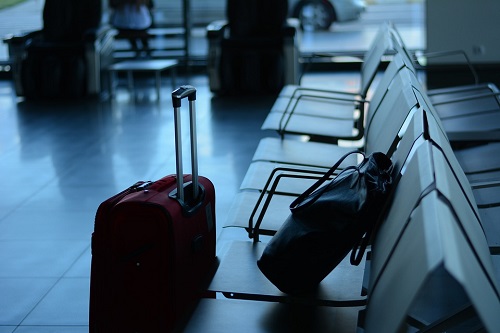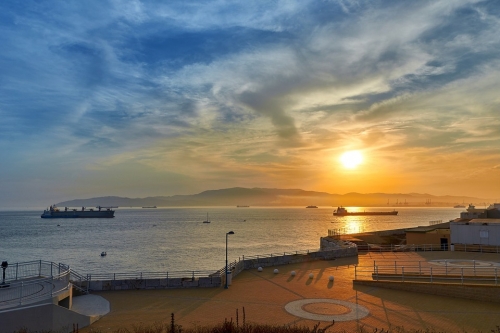A rocky British enclave in the Mediterranean, Gibraltar has been at the centre of several political issues since 1713, when it was passed into the hands of the Britons. Though this small island of around 30,000 people governs itself, it remains a colony of Great Britain to this day.The Chief Minister is the Head of the Government as well as the Council of Ministers, but the Monarch of the United Kingdom continues to be the Head of State. All internal matters are dealt with by the Chief Minister, whereas foreign and defense-related issues are directly managed by the British government. The British authorities have been represented by a Governor and the colony is home to the UK’s Royal Navy Base.
The political situation since the 17th century has been uneasy to say the least. However, it was further aggravated in 2002, when a referendum turned down the suggestion that the sovereignty of this nation should be shared with Spain. Britain’s decision to leave the European Union isn’t likely to help matters in the near future.
The referendum made it very clear that the residents of Gibraltar definitely did not want UK to exit the bloc. Data show that more than 96% of the Rock’s residents voted to remain in the EU. This is primarily because Gibraltar’s flourishing economy, which is built around e-commerce, online gaming, and financial services, is based on the EU’s free movement and single market policies. In the present situation, more than 50% of the country’s workforce, which consists of more than 12,000 Spanish and EU nationals, commutes across the border on a daily basis. Many of the people who live and work in Gibraltar are therefore worried about their status once the UK leaves the EU. Will they be able to reside in this destination and seek employment in the same way, or will the regulations undergo major changes in the future? In truth, only time can answer these questions.
Gibraltar after the referendum
Life on the Rock has not really changed much since the vote but there is a definite sense of trepidation in the air, even as people are making an attempt to get on with their lives. Most Gibraltarians are preparing themselves to face increased border controls, weaker Pound Sterling values, and a possible attempt by Spain to regain at least partial sovereignty of the territory. Almost immediately after the Brexit vote was announced, Madrid made it clear that it sees the UK’s departure from the EU as its best chance in three centuries to once again claim sovereignty on a territory that it has regretted ceding to Great Britain since 1713. Spain’s Foreign Minister, Jose Manual Garcia-Margallo, went as far as stating that “the Spanish flag on the Rock is much closer than before”.
Brits living in this country are also worried about other factors such as higher healthcare bills and costlier flights when they decide to visit home. While some residents are confident that Spain will not take over because Gibraltar and the UK will not allow it, they are also concerned about the bigger issue of the border. For several years, Spain shut down its border on numerous occasions because of its on-and-off relationship with Gibraltar. This caused a huge problem for thousands of people who reside in Spain but travel to Gibraltar for work. Expats from across Europe are now apprehensive about their future, as there is no clarity on how the exit will affect free movement and employment visa requirements.
In the worst scenario of a “Hard” Brexit, Britain could lose the automatic access it has to Europe’s single market. In this case, firms that are based in the UK and Gibraltar would not be able to offer their services to other nations in the EU. The Rock’s efforts to attract businesses looking to Europe with the promise of easy access to regulators, corporate tax of 10%, and a Mediterranean lifestyle would therefore come to an abrupt end. On the other hand, if a company wanted to do business in the UK, it would need to set up a subsidiary in Britain or Gibraltar.
Concerns related to Brexit
There is no denying the fact that Brexit is going to have a major impact the world over, and especially on European nations. Some of the repercussions may not be felt immediately but may become evident over a period of time.

At present, there are more than 1.2 million British citizens settled in various nations of the Union. Their residency rights, work permit requirements and healthcare benefits are all likely to be affected by Britain’s decision to leave. Experts say it is unlikely that those who are already settled abroad will be sent back or asked to leave, especially if they have been legal residents for over five years. However, since Gibraltar is a British territory, these issues shouldn’t be a concern for its British expat residents.
In all probability, most of the agreements between the UK and EU nations will be reciprocal. This means that if Britain requires EU migrants to apply for a residence permits and work visas, British citizens moving to EU countries will be expected to go through the same procedure. Taxation and inheritance laws are likely to undergo a revision. Existing property rights and pensions are expected to stay the same.
Some of the issues that have a higher impact on the people of Gibraltar than on other EU nations include the following.
Spain’s relationship with Gibraltar
It is clear that Spain has already started using the UK’s departure from the Union to undermine this British territory. Of course, the idea of joint Spanish-UK sovereignty is far from new. Spain insists that Brexit has become a game changer for the Rock. In fact, Spain’s Acting Minister for Foreign Affairs and Cooperation has asked the EU partners to exclude Gibraltar from all negotiations related to Brexit. Letters have been sent to the Foreign Ministers of other nations asking for their support and understanding, so that Britain concedes to co-sovereignty of Gibraltar, which was a “bilateral matter between Madrid and London”. The Foreign Minister added that the citizens of this peninsula had two simple choices; they could be “British outside the EU” or “Hispano-Brit within the EU”.
Even before the decision was announced, a report by the Commons Foreign Affairs Committee called for some action to prevent Spain from taking advantage of the “leave” vote to take advantage of and target the disputed peninsula. It stated that “the UK must immediately act to protect Gibraltar from such actions in the event of a vote to leave the EU”. Gibraltar’s government submitted a statement to the committee, warning them about how Brexit could leave their country open to increased Spanish aggression. The statement read: “Experience has shown that Spain would take advantage of any such renegotiation in order to further undermine, isolate and exclude Gibraltar from the European mainstream”.
Restrictions on the borders
For the Spanish, Gibraltar has been like a disputed territory for more than three centuries, even though the two countries are neighbors and share a common border. In the past, Spain closed its borders to the Rock for more than a decade during the Franco dictatorship. The border was only fully reopened in 1985 when Spain was interested in joining the EU. If a similar problem occurred today, residents on both sides would be stranded.
Around three years ago, Spanish authorities intensified their border checks because of a bitter dispute over territorial waters between the two nations. This created huge traffic jams and people wasted hours at the crossing. Eventually, the situation only came under control after an intervention from the European commission.

Today, border inspections are only moderated by the EU rule over free movement of people. Without this policy in place the border between Gibraltar and Spain could once again become a wall. Spain may also ask the citizens of Gibraltar to obtain expensive visas every time they plan to visit. The introduction of heavy frontier tolls on all motorists driving in or out is another possible concern, as it would deter people from traveling freely and would consequently choke the Rock’s economy by slowing down its tourism industry.
Economy
Even during the European financial crisis, the economy of the Rock showed growth that was almost in double digits. Over the last decade, this country’s employment has increased by around 50%. Unfortunately, things are expected to go downhill without continued support from the union.
The modern and service-based economy of Gibraltar has mainly benefitted from the EU’s rules on free movement of people, capital and services. Much of its income is generated from customs duties, offshore financing, internet gaming, provision of ships, and tourism. The pillars of this peninsula’s economy include shipping trade, international finance and the online gaming industry. The success of these services depends a lot on access to single market and Brexit would therefore have an adverse impact on a number of industries as well as the overall economy. Some members of Gibraltar’s business community claim that “it felt like someone had died” when the decision to leave the bloc was announced.
To avoid going under, businesses have been forced to explore alternatives. Some of the entities may shift their focus back to the UK. They are repositioning themselves as entry points for European organizations that are keen to get into the UK market after Brexit. Gibraltar’s low startup costs and attractive tax regime should also work in its favor. New trade laws are likely to be implemented between both countries.
History has shown that the Rock is quite capable of adapting to different circumstances, no matter how adverse they may seem. This was all the more evident when former Spanish dictator Francisco Franco closed the border in 1969 and reopened it after a gap of more than a decade, in the 1980s. A majority of Gibraltarians are of the strong opinion that their country can quickly reposition itself, since is it a small jurisdiction.
The territory is not an integral part of the UK and their relationship with the 27-nation bloc is also different. This fortunately gives Gibraltar scope to retain some of its relations with the EU even after Brexit. While Theresa May has been talking about the Great Repeal Bill to terminate the EU’s authority over the Rock, officials have been working to preserve as many advantages as they can.
The Chief Minister of the nation, Fabian Picardo, is looking for options to keep the territory as a part of the EU in spite of the referendum. The Rock is seeking a Brexit deal that will preserve its access to the EU’s single market, along with the ability of thousands of workers to freely move across the border. Picardo claims that they are looking for a relationship with the EU that offers them an associate-like status and compares it to models such as Liechtenstein, Greenland and Andorra.
In Picardo’s words, Brexit “is an existential threat the Gibraltar’s current economic model”. He claims that if they were to lose access to the single European market for their services, they would have to make sure that those in Gibraltar seeking such services would somehow have access to the rest of the EU. Picardo further added that this does not mean Gibraltar will not be able to reposition its economy and continue to grow with a different, successful economic model.
While a lot has been said by all the three governments in the last few months, it is difficult to predict what the exact situation will be in Gibraltar once Brexit actually happens.
Are you living in Gibraltar? What are your thoughts on what will happen after Brexit? Share your comments below, or answer the questions here to be featured in an interview.

